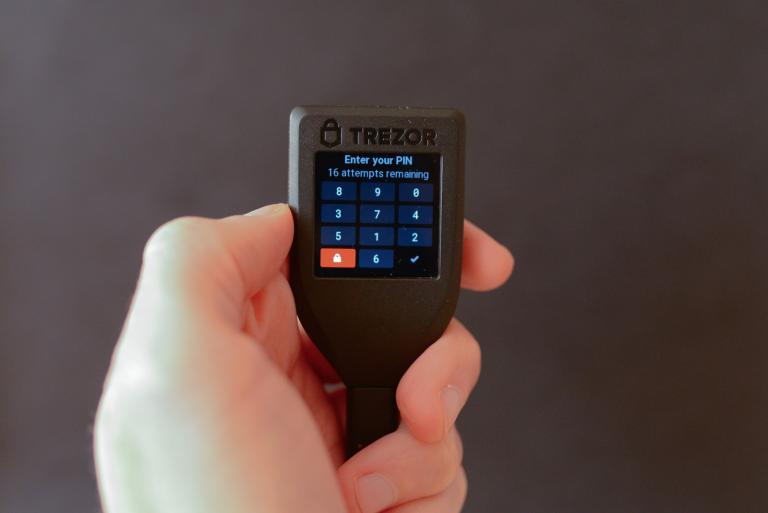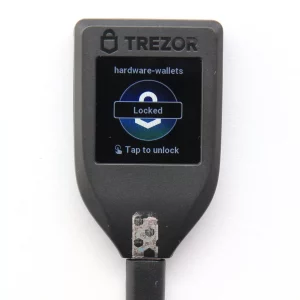A hardware wallet is a specialized form of Bitcoin wallet that securely stores the private keys necessary to access and manage your Bitcoin holdings. Unlike software wallets, which are applications or programs running on computers or mobile devices, hardware wallets are physical devices designed to provide an extra layer of security by keeping the private keys offline. One crucial aspect of this security is the operating system you choose to manage your Bitcoin holdings.
The Importance of Operating System Security
While a hardware wallet offers robust offline security, your online transactions still need to pass through the gatekeeper – your operating system. The choice of an operating system for Bitcoin storage plays a pivotal role in securing your Bitcoin holdings. Operating systems act as the foundation for software applications, and their security measures directly impact the overall safety of your Bitcoin. Linux, known for its open-source nature and strong security protocols, stands out as a trustworthy choice for Bitcoin holders.
Linux offers several advantages, including:
- Security Focus and Open Source: Linux is generally considered more secure than other popular operating systems. Its open-source nature allows for rigorous community scrutiny, quickly identifying and patching vulnerabilities. This minimizes the attack surface for malicious actors.
- Customization: Linux offers customization, allowing you to tailor your environment to your specific needs. This allows you to implement additional security measures and configure systems for optimal Bitcoin management.
- Privacy Conscious: Linux distributions often prioritize user privacy over data collection and invasive practices. This aligns perfectly with the ethos of Bitcoin users who value control over their financial information.
Beyond its inherent security features, Linux is well-suited for Bitcoin management for several reasons:
- Resource Efficiency: Linux operates efficiently even on older hardware, making it accessible to a broader range of users. This resource efficiency contributes to a smoother Bitcoin management experience, especially when using hardware wallets that may not require high-end specifications.
- Command-Line Interface (CLI): Linux’s command-line interface provides advanced users with a powerful tool for managing and interacting with their Bitcoin wallets. This can be advantageous for those who prefer a more hands-on approach to Bitcoin management.
- Stability and Reliability: Linux is renowned for its stability and reliability, reducing the likelihood of system crashes or unexpected disruptions during critical Bitcoin transactions.
Check out: Best Operating System for Bitcoin Storage
Best Hardware Wallet for Linux
Here are some of the best hardware Bitcoin wallets for Linux operating system:
- Blockstream Jade: Blockstream Jade is an open-source hardware wallet for Linux. It is best suited for long-term cold storage of larger amounts of bitcoin. You need to install a driver for your computer to recognize Jade. For Linux users, Jade will work out of the box without the need of additional drivers. Read our Blockstream Jade Review.
- BitBox: Bitbox is an easy to use USB-C hardware wallet for Linux OS. In addition to its security and privacy features, BitBox BTC wallet is also known for its compact size and portability, as it is small enough to fit in a pocket or be carried on a keychain. Supported Linux distributions are Debian (11 bullseye and newer), Ubuntu (20.04+), and Fedora (36+). Here’s our Comprehensive Review of BitBox.
- Trezor: This is one of the oldest hardware wallet for Linux operating system. It stores your Bitcoin keys offline in physical USB-like devices. Trezor users can access built-in bitcoin exchanges to buy and sell bitcoin directly within the wallet. Find out more from our Trezor Hardware Wallet Review.
- Ledger: Despite being a popular hardware wallet option for Linux users, recent privacy and security issues surrounding Ledger warrant caution. In May 2023, the introduction of their “Ledger Recover” subscription service raised red flags. Concerns emerged about the practice of sharing private keys across multiple entities, potentially jeopardizing user data and privacy. Considering these developments, we recommend exploring Ledger alternatives for your Linux Bitcoin storage needs.
- KeepKey: KeepKey is a well-known hardware wallet designed to work on Linux operating system. It offers various security measures like PIN lock, multi-signature support, and secure firmware.
- OneKey: OneKey is currently the only Linux hardware wallet that supports the Lightning Network.
While Foundation’s Passport hardware wallet is a fully air-gapped hardware wallet (meaning it never connects directly to your computer), it’s fully compatible with a variety of externally maintained wallet software, most of which are Linux-friendly. This allows you to securely manage your Bitcoin on Linux while enjoying the robust security of an air-gapped device.
Hardware Wallet Solutions for Your Linux OS
Linux’s open-source nature, robust security protocols, and user-centric philosophy perfectly align with the values of Bitcoin ownership. From resource efficiency to command-line power, Linux provides a stable and secure platform for managing your funds.
However, even within the trusted world of Linux, not all hardware wallets are created equal. While some like Blockstream Jade and BitBox offer top-notch security and user-friendliness, others like Ledger raise concerns regarding privacy practices. It’s crucial to consider your technical expertise and desired security features. If you prioritize open-source software, options like BitBox might be ideal. For a fully airgapped wallet, Blockstream Jade is a good option. If user-friendliness and in-built exchange are key, Trezor could be a good fit.



























